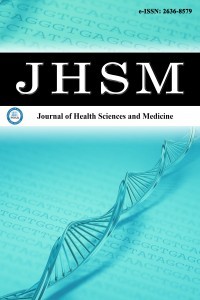1.
Dahiya D, Nigam PS. The gut microbiota influenced by the intakeof probiotics and functional foods with prebiotics can sustainwellness and alleviate certain ailments like gut-inflammation andcolon-cancer. Microorganisms 2022; 10: 665.
2.
Dahiya D, Nigam PS. Probiotics, prebiotics, synbiotics, andfermented foods as potential biotics in nutrition improving healthvia microbiome-gut-brain axis. Fermentation 2022; 8: 303.
3.
Gibson GR, Scott KP, Rastall RA, et al. Dietary prebiotics: Currentstatus and new definition. IFIS Functional Foods Bulletin 2010;7: 1-19.
4.
Lee YK, Salminen S. Handbook of probiotics and prebiotics. JohnWiley & Sons. 2009.
5.
Sarkar A, Lehto SM, Harty S, Dinan TG, Cryan JF, Burnet PWJ.Psychobiotics and the manipulation of bacteria-gut-brain signals.Trends Neurosci 2016; 39: 763-81.
6.
Dinan TG, Butler MI, Cryan JF. Psychobiotics: evolution of novelantidepressants. Mod Trends Psychiatry 2021; 32: 134-43.
7.
Mayer EA, Knight R, Mazmanian SK, Cryan JF, Tillisch K.Gut microbes and the brain: paradigm shift in neuroscience. JNeurosci 2014; 34: 15490-6.
8.
Savignac HM, Corona G, Mills H, et al. Prebiotic feeding elevatescentral brain derived neurotrophic factor, N-methyl-D-aspartatereceptor subunits and D-serine. Neurochem Int 2013; 63: 756-64.
9.
Macfarlane GT, Macfarlane S, Gibson GR. Validation of a three-stage compound continuous culture system for investigating theeffect of retention time on the ecology and metabolism of bacteriain the human colon. Microb Ecol 1998; 35: 180-7.
10.
Macfarlane GT, Gibson G. Microbiological aspects of short chainfatty acid production in the large bowel 1995; 87-105.
11.
Selhub EM, Logan AC, Bested AC. Fermented foods, microbiota,and mental health: ancient practice meets nutritional psychiatry. JPhysiol Anthropol 2014; 33: 2.
12.
Hilimire MR, DeVylder JE, Forestell CA. Fermented foods,neuroticism, and social anxiety: an interaction model. PsychiatryRes 2015; 228: 203-8.
13.
Alexander KE, Siegel HI. Perceived hunger mediates therelationship between attachment anxiety and emotional eating.Eat Behav 2013; 14(3): 374-7.
14.
Logan AC, Katzman M. Major depressive disorder: probioticsmay be an adjuvant therapy. Med Hypotheses 2005; 64: 533-8.
15.
Alexander KE, Siegel HI. Perceived hunger mediates therelationship between attachment anxiety and emotional eating.Eat Behav 2013; 14: 374-7.
16.
Jadrešin O, Hojsak I, Mišak Z, et al. Lactobacillus reuteri DSM17938 in the treatment of functional abdominal pain in children:RCT study. J Pediatr Gastroenterol Nutr 2017; 64: 925-9.
17.
Güleç M,Yabancı N,Göçgeldi E,Bakır B. Ankara'da iki kız öğrenciyurdunda kalan öğrencilerin beslenme alışkanlıkları. Gülhane TıpDerg 2008; 50: 102-9.
18.
Lovibond PF, Lovibond SH. The structure of negative emotionalstates: comparison of the depression anxiety stress scales (DASS)with the Beck depression and anxiety inventories. Behav Res Ther1995; 33: 335-43.
19.
Sarıçam H. The psychometric properties of Turkish version ofDepression Anxiety Stress Scale-21 (DASS-21) in health controland clinical samples 2018; 7: 19-30.
20.
Derin DÖ, Keskin S. Gıda mühendisliği öğrencilerinin probiyotikürün tüketim durumlarının belirlenmesi: Ege Üniversitesi Örneği.GIDA 2013; 38: 215-22.
21.
Arpa Zemzemoğlu TE, Uludağ E, Uzun S. Üniversiteöğrencilerinin probiyotik bilgi düzeyi ve tüketim durumlarınınbelirlenmesi. Gıda 2019; 44: 118-30.
22.
Kaya Cebioğlu İ, Önal AE. İstanbul’da bir ilçede erişkinlerdeprobiyotik ve prebiyotik tüketimi ile obezite arasındaki ilişkininincelenmesi. Geleneksel ve Tamamlayıcı Tıp Derg 2019; 2: 55-63.
23.
Yılmaz F, Yardımcı H. Beden kütle indeksinin infertilite üzerineetkisi. Hacettepe University Faculty of Health Sciences J 2015.
24.
Evrensel A, Ceylan ME. Bağırsak-beyin ekseni: depresyondakikayıp halka. Klinik Psikofarmakoloji ve Nörobilim 2015; 13: 239.
25.
de Souza BL, Magalhães-Guedes KT, Lemos PVF, et al.Development of arrowroot flour fermented by kefir grains. J FoodSci 2020; 85: 3722-30.
26.
Al-Ansari MM, Sahlah SA, AlHumaid L, Ranjit Singh AJ. Probioticlactobacilli: Can be a remediating supplement for pandemicCOVID-19. A review. J King Saud Univ Sci 2021; 33: 101286.
27.
Nishida K, Sawada D, Kawai T, Kuwano Y, Fujiwara S, RokutanK. Para-psychobiotic Lactobacillus gasseri CP2305 amelioratesstress-related symptoms and sleep quality. J Appl Microbiol 2017;123: 1561-70.
28.
Xu J, Li Y, Yang Z, et al. Yeast probiotics shape the gut microbiomeand improve the health of early-weaned piglets. Front Microbiol2018; 9: 2011.
29.
Woodhams DC, Rollins-Smith LA, Reinert LK, et al. Probioticsmodulate a novel amphibian skin defense peptide that isantifungal and facilitates growth of antifungal bacteria. MicrobEcol 2020; 79: 192-202.
30.
Mörkl S, Butler MI, Holl A, Cryan JF, Dinan TG. Probiotics andthe microbiota-gut-brain axis: focus on psychiatry [publishedcorrection appears in Curr Nutr Rep 2020 Jun 5; : ]. Curr NutrRep 2020; 9: 171-82.
31.
Liu J, Jin Y, Li H, et al. Probiotics exert protective effect againstsepsis-induced cognitive impairment by reversing gut microbiotaabnormalities. J Agric Food Chem 2020; 68: 14874-83.
32.
Kuyumcu A,Yıldız M. Sağlık bilimleri fakültesi öğrencilerininpsikobiyotik özellik gösteren besinlerin tüketim durumları ilemutluluk düzeyleri arasındaki ilişkisi. Namık Kemal Tıp Derg2020; 8: 212-8.
33.
Mohammadi AA, Jazayeri S, Khosravi-Darani K, et al. The effectsof probiotics on mental health and hypothalamic-pituitary-adrenal axis: A randomized, double-blind, placebo-controlledtrial in petrochemical workers. Nutr Neurosci 2016; 19: 387-95.
34.
Yüksel-Bilsel A, Şahin-Yeşilçubuk N. Enkapsüle yapılı lipitler ilegüçlendirilmiş probiyotik kefir üretimi ve oksidasyon ve in vitrosindirim çalışmaları ile matriks etkilerinin araştırılması. GıdaKimyası 2019; 296: 17-22.
35.
Pehlivan B. Yetişkin bireylerin probiyotik besinleri tüketimsıklıklarının ve bilgi düzeylerinin belirlenmesi. BilimselTamamlayıcı Tıp Regülasyon ve Nöral Terapi Derg 2020: 14; 69-79.
36.
Horasan B, Sevinç Ö, Çelikyürek NA. Üniversite öğrencilerininprobiyotik bilgi düzeyi ve tüketim durumlarının belirlenmesi.Avrupa Bilim ve Teknoloji Derg 2021; 31: 446-53.
37.
Özen AE, Bibiloni Mdel M, Pons A, Tur JA. Consumption offunctional foods in Europe; a systematic review. Nutr Hosp 2014;29: 470-8.

